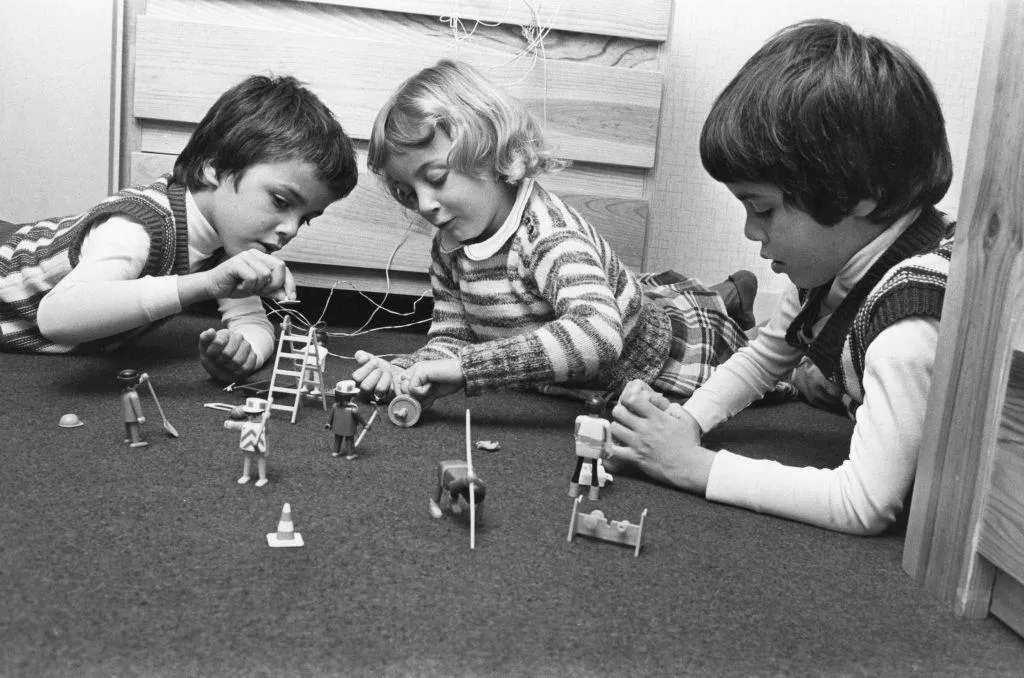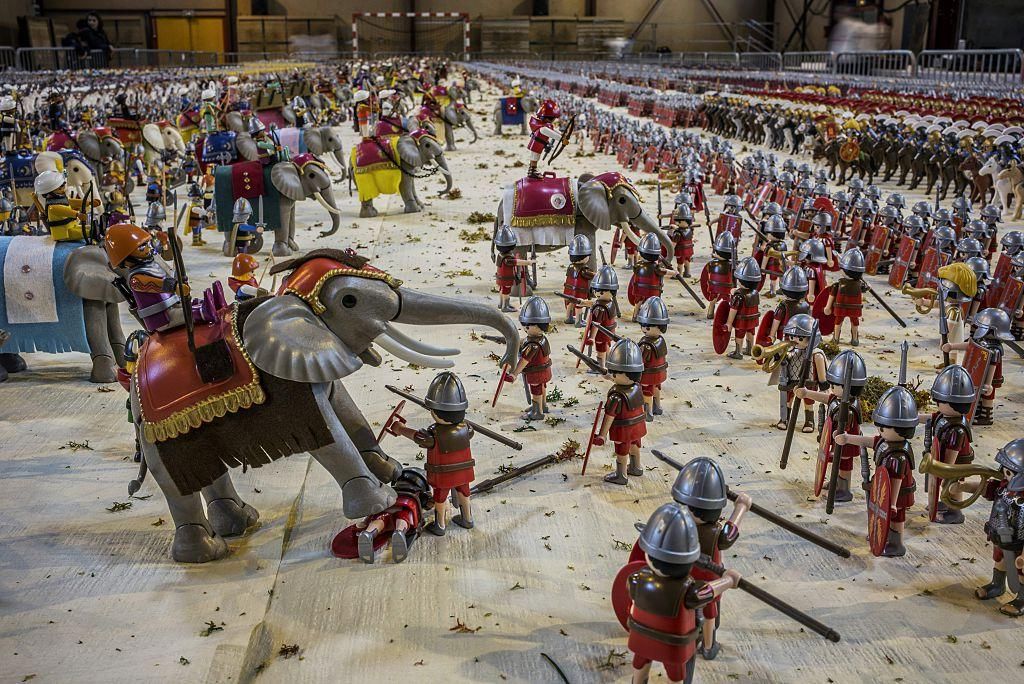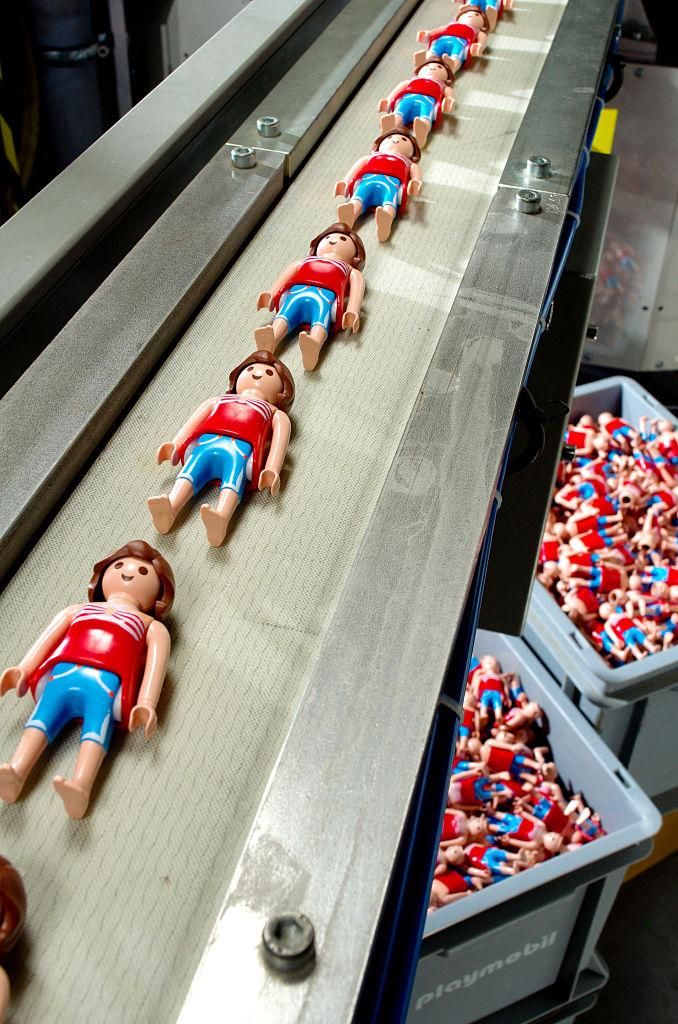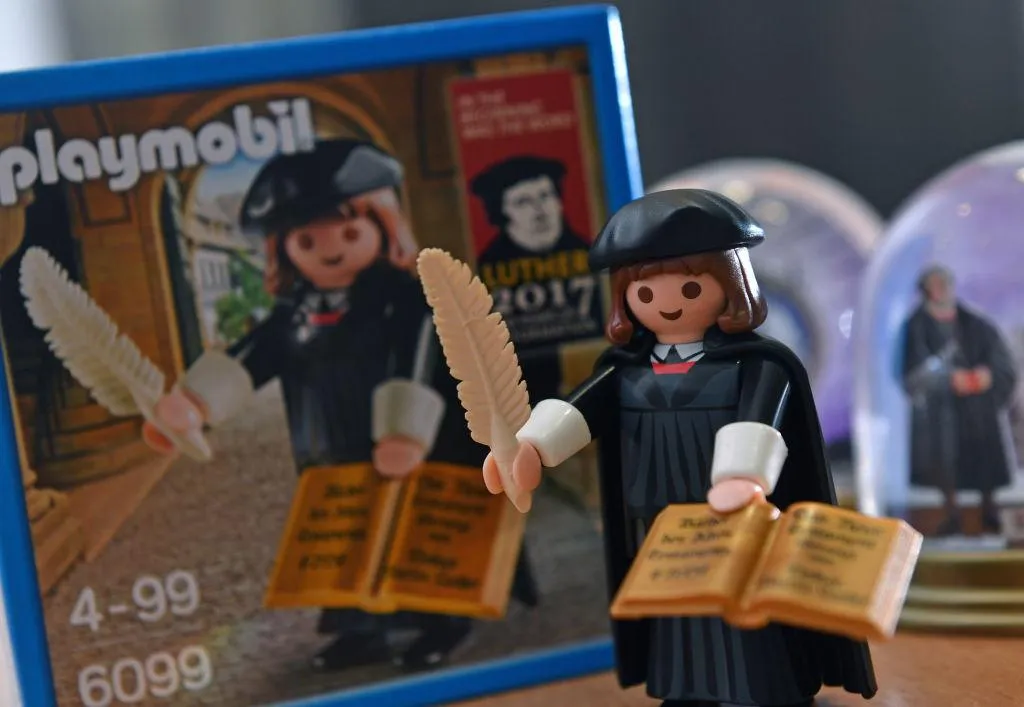How Playmobil Went From a Simple, Smiling Figure to a Worldwide Sensation
A new movie plays off the narrative nature of a toy that has been capturing imaginations for 45 years
/https://tf-cmsv2-smithsonianmag-media.s3.amazonaws.com/filer/e1/35/e135437d-452c-4d91-9580-af39aa253f85/playmobil_figure_close-up.jpg)
It is the stuff of imagination: Vikings, pirates, spies, flying horses, an alien crime lord, fairy godmother, robots, a Roman emperor, even a hungry T. rex.
Playmobil: The Movie, which premieres this week in U.S. theaters, seems to have it all. Just like the popular play set, the film takes young minds on a wild adventure of creativity into new dimensions where anything is possible with Playmobil toys.
Released in France and the United Kingdom over the summer, the movie features the voices of Daniel Radcliffe, Jim Gaffigan, Meghan Trainor and Adam Lambert, along with child actors Ana Taylor-Joy and Gabriel Bateman.
It is, of course, based on the bestselling line of toys produced by the Brandstätter Group in Germany. Featuring a childlike smiling face with no nose, the essential Playmobil character has sold more than 3 billion units since being introduced in 1974. According to the Playmobil website, sales in 2018 were €748 million, or about $844 million. The toy is sold in nearly 100 countries worldwide.
Playmobil was created by inventor Hans Beck, a trained cabinetmaker who was looking to develop a toy for children aged 5 to 12. At about 3 inches tall, the 1:24 scale human figure he came up with easily fits in a young one’s hand and doesn’t require an abundance of motor skills to play with.
The very first Playmobil sets included knights, Native Americans and construction workers. With their pleasant faces and limited movements, the toy was missing only one thing: imagination. Children were free to create playtime scenarios that were as creative and limitless as their own minds could be.
“I would put the little figures in their hands without saying anything about what they were,” Beck told The Christian Science Monitor in a 1997 interview. “They accepted them right away.... They invented little scenarios for them. They never grew tired of playing with them.”

According to Beck, who died in 2009, the toy’s continued popularity has a lot to do with fingerspitzengefuhl, a German word meaning “a special sensitivity in your fingertips.” Little hands could feel it as they maneuvered the figures about in new worlds of playful inventiveness.
“My figures were quite simple, but they allowed children room for their imagination,” he said in The Christian Science Monitor article.
However, one industry analyst thinks there is more to the story. Richard Gottlieb, principal and founder of Global Toy Experts, credits the European model for toy-making as a reason for the toy’s longevity and sustainability.

“Europeans see toys one way, Americans see them another,” he says. “In the United States, toys are more of an impulse buy. In Europe, they are a planned purchase. They make them to be durable so they can be passed down from generation to generation. I think that’s a wonderful way to look at toys.”
He adds, “I like to refer to the toys from Europe as legacy toys and the ones from America as landfill toys.”
Over the years, the Playmobil line has grown to include a wide range of characters, as well as accessories, buildings, vehicles and even animals. Hundreds of different figures and play sets have been created, produced and retired to keep the brand fresh and children—not to mention collectors—interested in new offerings.

Those products include just about everything from construction, police, fire, sports, history, space, health care, culture and many more themes. Sets are as diverse as ice pirates in snowmobiles and a Coast Guard station with lighthouse to a mystical fairy glen and Mars research vehicle.
Kids can play with castles, pirate ships, hospitals, farms, bakeries, Santa’s workshop, even a Roman coliseum. Some of the historical figures and accessories are considered so accurate that adult enthusiasts will buy hundreds of them to build dioramas and layouts of ancient battles and other scenes. The characters are well-researched and detailed enough—right down to authentic-looking shields and weapons—that history fans and the occasional museum will include them in large displays depicting an event from antiquity.

Playmobil has also entered into partnerships with high-profile brands. These line extensions include movies like Ghostbusters, Spirit and How to Train Your Dragon, as well as the NHL. In 2020, the company is expected to release toys tied to a new Scooby-Doo movie and the 35th anniversary of the Back to the Future franchise.
The bestselling Playmobil toy of all time was created in 2017. For the 500th anniversary of the Protestant Reformation, the company produced 34,000 units of a Martin Luther figure. Sales reached, well, biblical proportions as the original batch sold out in three days. Playmobil quickly went back into production and had shipped its 1 millionth figure by June of that year.

According to Global Toy Experts’ Gottlieb, Playmobil remains a trendy toy because of its play platform. While designed to compete with Lego building blocks, its narrative nature encourages children to use their own imaginations to create brave new worlds of fun and play. Not to be outdone, Lego has addressed this fundamental element of creativity by developing themed products that enable children to spin tales from their imagination. The difference, though, is that these worlds have to be constructed first, whereas Playmobil toys can take off on cerebral adventures right out of the box.
“Playmobil is all about story-telling,” he says. “You can pretend to be a pirate or anything else your mind wants. It’s a wonderful way to play.”
Not to miss out on an opportunity, Playmobil has a new set of figures launching with the release of the movie. They are, in fact, identical to the characters on the big screen, so little minds can dream up endless exploits and escapades for the heroes and villains.
/https://tf-cmsv2-smithsonianmag-media.s3.amazonaws.com/accounts/headshot/dave.png)


/https://tf-cmsv2-smithsonianmag-media.s3.amazonaws.com/accounts/headshot/dave.png)